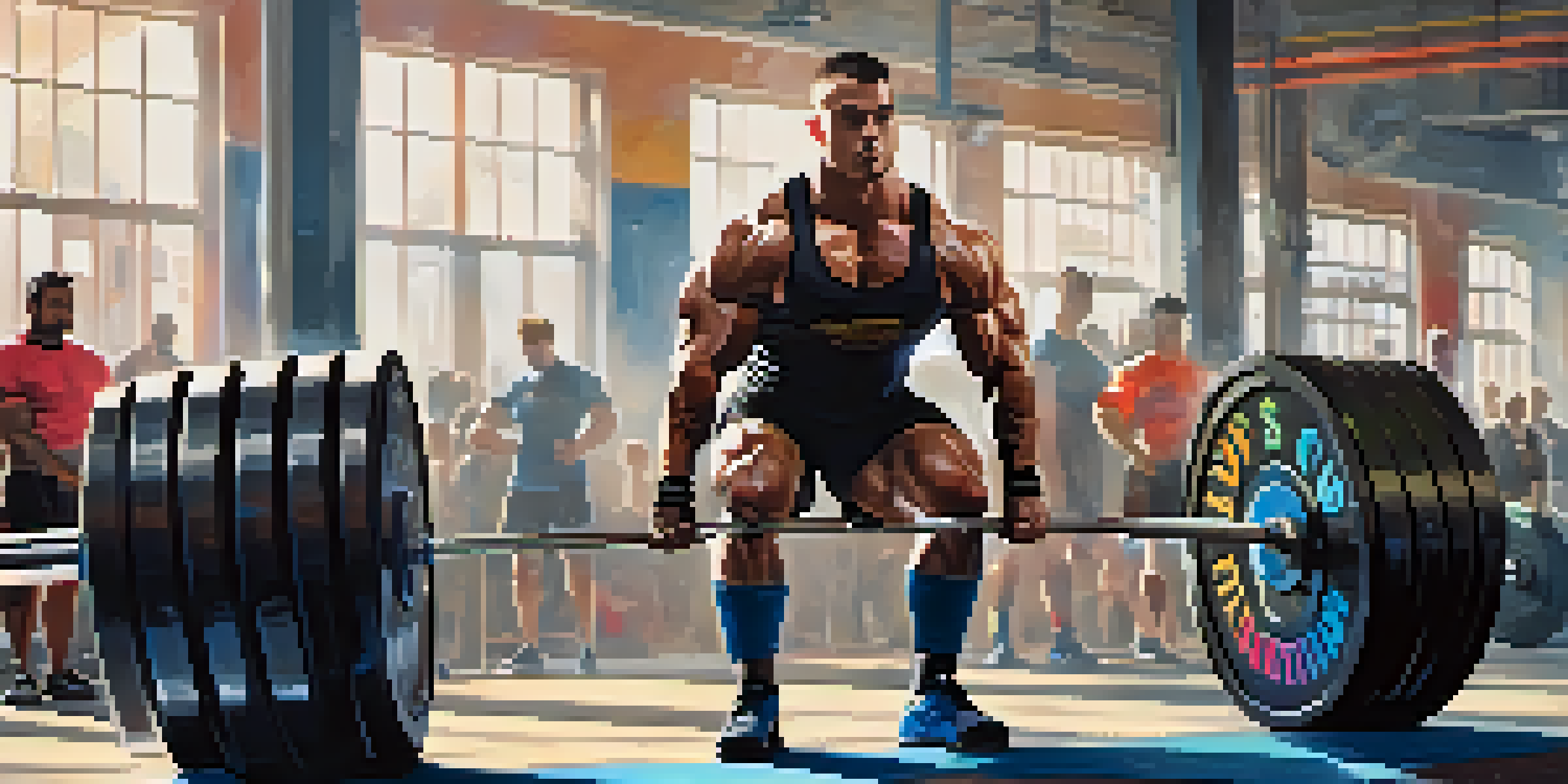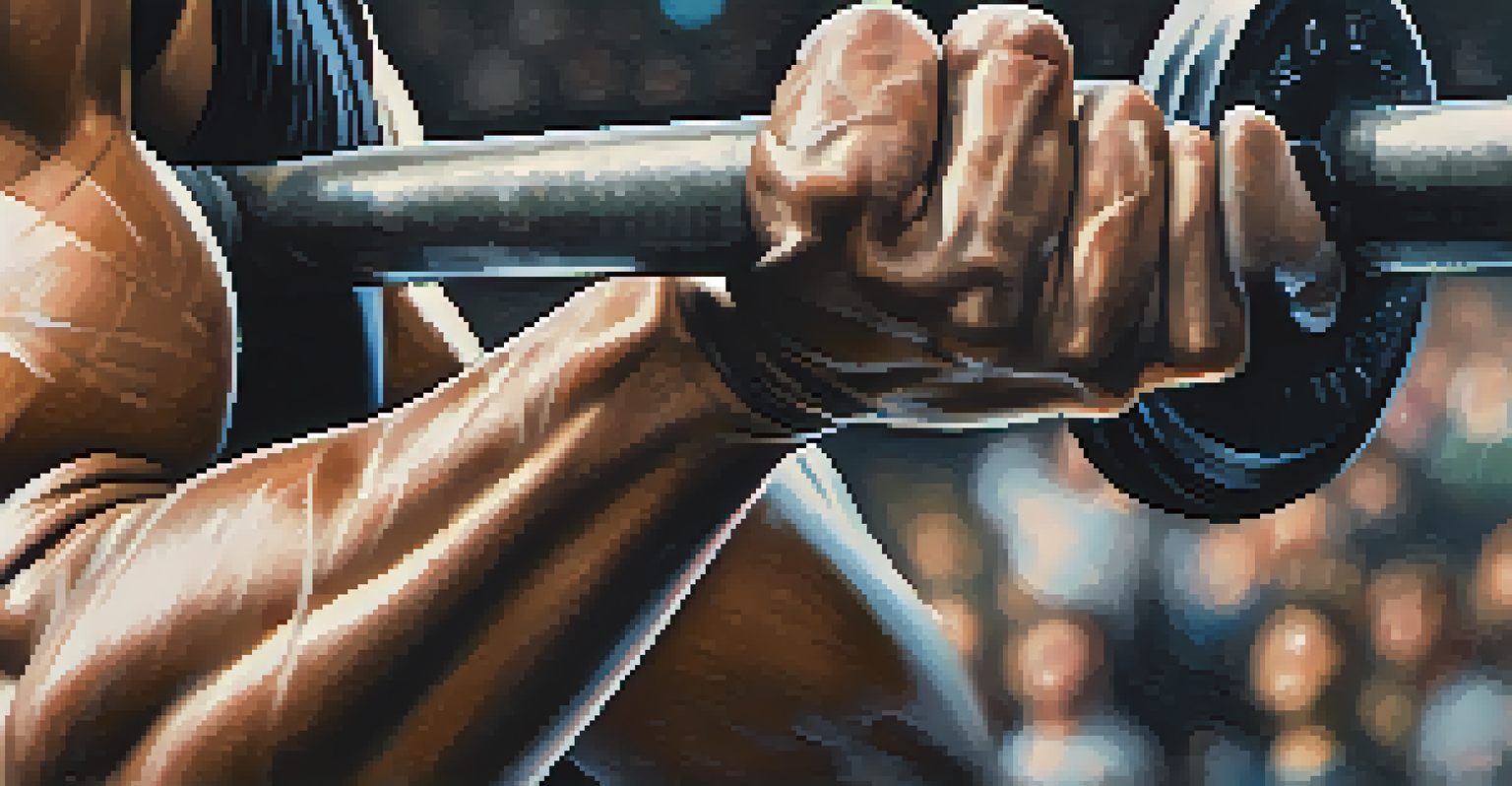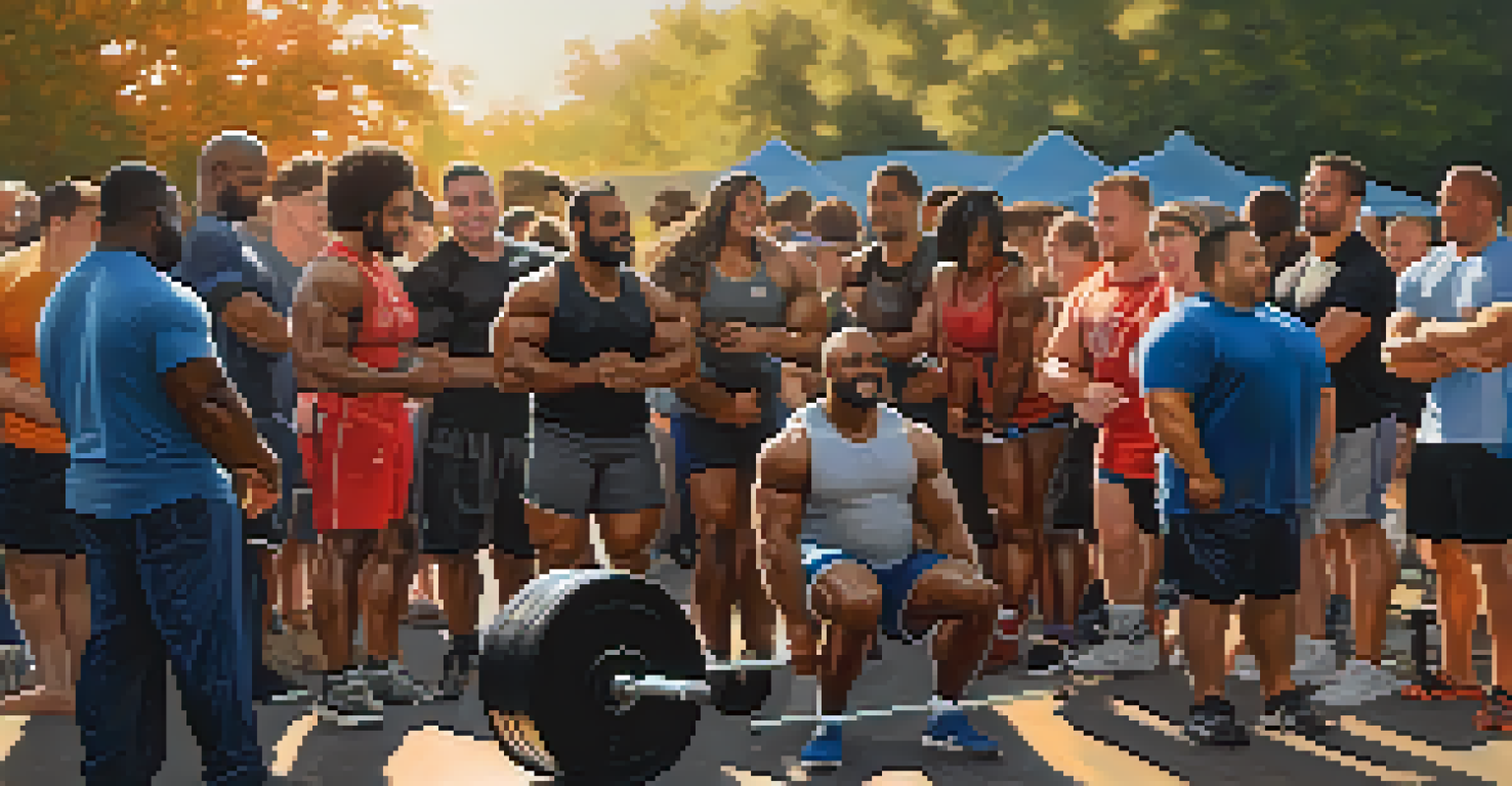Social Media Challenges in the Powerlifting Community

The Pressure of Perfect Representation on Social Media
In the world of powerlifting, social media often showcases only the highlights—big lifts, personal records, and moments of triumph. This can create an unrealistic standard for both experienced lifters and newcomers, leading to feelings of inadequacy. Many athletes may feel pressured to constantly showcase their best performances, which can detract from the joy of training.
Social media can amplify your voice, but it can also distort your message.
Moreover, the pursuit of perfection can lead to a cycle of comparison, where lifters find themselves measuring their progress against others' achievements. This can create a toxic environment, especially for beginners who are still finding their footing in the sport. The emphasis on showcasing only the best moments can overshadow the importance of hard work, dedication, and incremental improvement.
Ultimately, while social media can be a powerful tool for motivation, it's crucial for lifters to remember that everyone has their own journey. Celebrating the small wins and sharing struggles can foster a more supportive community, encouraging authenticity over perfection.
Navigating Online Criticism and Negativity
Social media platforms can be a double-edged sword; they connect powerlifters worldwide but also expose them to criticism and negativity. Many lifters share their journeys online, only to encounter unsolicited advice or harsh comments from strangers. This can be particularly discouraging for those who are still learning or trying to grow in the sport.

The anonymity of the internet often emboldens individuals to express opinions without considering the impact of their words. For powerlifters, such negativity can lead to self-doubt and even deter them from sharing their experiences. It’s essential for athletes to develop thick skin and focus on the constructive feedback while filtering out the noise.
Pressure of Perfection in Powerlifting
Social media often promotes unrealistic standards in powerlifting, pressuring athletes to showcase only their best moments.
Building a supportive online environment is key. Lifters can create safe spaces by surrounding themselves with positive influences, engaging in communities that uplift one another, and reminding themselves that everyone has their own struggles.
The Influence of Trends and Fads in Powerlifting
Social media is notorious for trends that can quickly sway opinions, and the powerlifting community is no exception. From new training techniques to viral challenges, many lifters feel compelled to jump on the latest bandwagon, sometimes without fully understanding the implications. This can lead to confusion and, in some cases, even injury if athletes abandon their personalized training routines.
Comparison is the thief of joy.
Moreover, chasing after trends may distract from proven training methodologies that have stood the test of time. While it’s great to be open to new ideas, powerlifters should critically evaluate what works for their bodies and goals rather than following the crowd blindly. A thoughtful approach can ensure that lifters stay aligned with their personal progress and needs.
Ultimately, it's essential to balance staying informed about new developments while remaining grounded in the fundamentals of powerlifting. Adapting strategies should always come from a place of understanding rather than fleeting popularity.
Balancing Authenticity and Branding on Social Media
For many powerlifters, social media is not just a platform for sharing lifts; it’s also a way to build a personal brand. However, this can create a conflict between authenticity and the desire to present a polished image. Lifters often grapple with how much of their true selves to share, weighing the risks of vulnerability against the potential for growth and connection.
Creating a brand can be beneficial, leading to sponsorships and community recognition, but it can also put pressure on athletes to curate their content meticulously. This pressure can lead to a disconnection from the very aspects that make powerlifting enjoyable—the camaraderie, the challenges, and the journey. Finding a balance that allows for genuine expression while still engaging an audience can be tricky.
Navigating Negativity Online
Criticism on social media can discourage powerlifters, making it vital for athletes to focus on constructive feedback and build supportive communities.
By embracing their authentic selves, lifters can cultivate a community that appreciates them for who they are, not just their achievements. This authenticity can inspire others to share their true experiences, fostering a more connected and relatable powerlifting community.
The Challenge of Information Overload
With the vast amount of content available on social media, powerlifters often face the challenge of information overload. From workout tips to nutrition advice, it can be overwhelming to sift through endless posts, videos, and articles. This deluge can lead to confusion about what advice to follow, especially for those new to the sport.
The abundance of voices on social media can sometimes muddy the waters, making it difficult to discern credible sources. Powerlifters may find themselves lost in a sea of conflicting information, which can hinder their progress and lead to frustration. It's crucial for athletes to prioritize sources that resonate with their goals and values, ensuring they stay informed without feeling overwhelmed.
Establishing a go-to list of trusted experts or communities can help streamline the learning process. By focusing on a few reliable sources, lifters can cut through the noise and gain clarity on their training journey.
Community Building in the Digital Age
One of the most powerful aspects of social media is its ability to foster community among powerlifters. Online platforms provide a space for individuals to connect, share experiences, and support one another, regardless of geographical barriers. This sense of belonging can be incredibly motivating, especially for those who may not have access to a local gym community.
However, cultivating a genuine sense of community can be challenging amidst the noise of competition and comparison. It's essential for powerlifters to engage authentically, sharing not just their successes but also their struggles. By being vulnerable and open, lifters can encourage others to do the same, creating a more inclusive atmosphere.
Community Building Through Authenticity
Engaging authentically on social media fosters a supportive powerlifting community, encouraging members to share both successes and struggles.
Ultimately, the strength of the powerlifting community lies in its ability to uplift one another. By focusing on shared experiences and mutual support, lifters can build a digital space that fosters growth and camaraderie, making the journey all the more enjoyable.
Leveraging Social Media for Positive Change
Despite the challenges, social media has the potential to be a force for positive change within the powerlifting community. Lifters can use their platforms to advocate for issues that matter, such as inclusivity, mental health awareness, and body positivity. By sharing their stories and insights, they can inspire others to embrace these values and make a difference.
For instance, showcasing diverse athletes and promoting adaptive powerlifting can help break down barriers and encourage participation from underrepresented groups. When lifters share their journeys, they can empower others to pursue their passions, regardless of their background or ability. This creates a ripple effect, fostering a more diverse and inclusive community.

Ultimately, harnessing the power of social media for good can lead to meaningful conversations and actions. By focusing on what truly matters, powerlifters can collectively work towards a more positive and supportive environment, benefiting both the sport and its community.